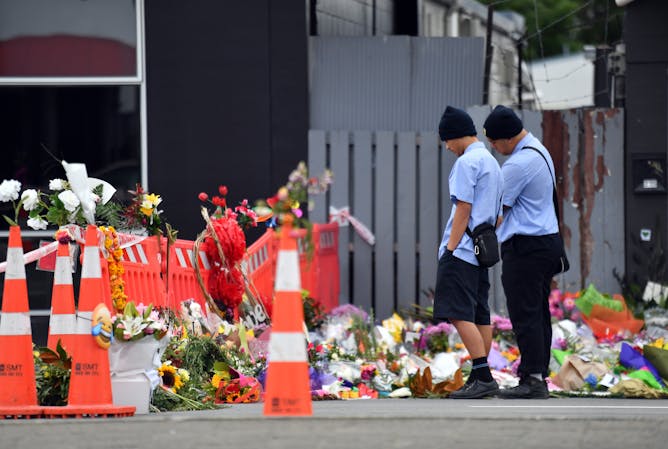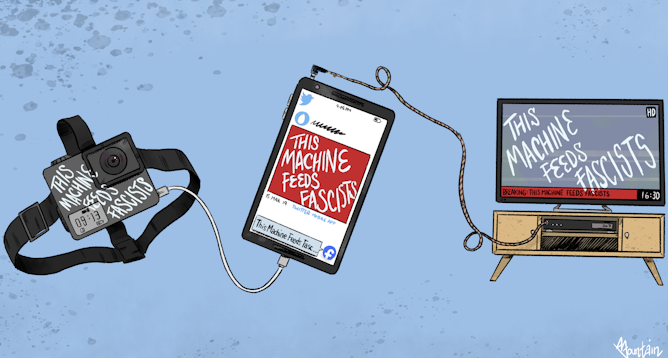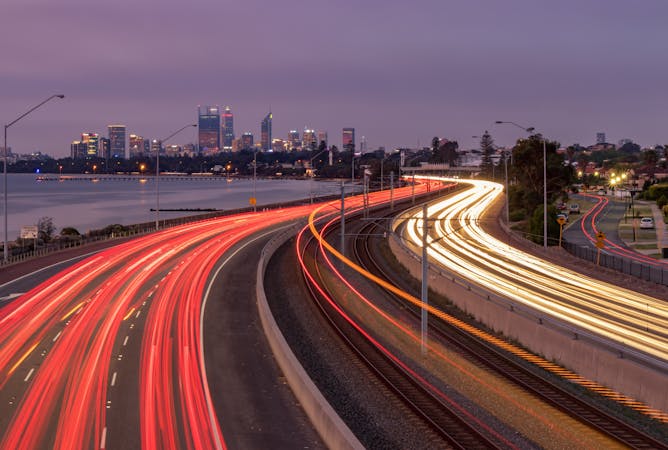|
|
|
Editor's note
|
|
The Christchurch attacks shocked the world and many people found themselves switching on the TV news to better understand what was going on. But how does this affect your mental health? The more footage you watch, the more likely you are to experience psychological distress, explains Richard Bryant, especially if you’re watching from the gunman’s perspective.
And in the aftermath of the attacks, writes Denis Muller, there is an ethics lesson for the professional media, many of whom failed the “test of necessity” by broadcasting the violence. Whether social media published it or not is immaterial, Muller argues – the weakest reason for publishing something is that someone else already has.
Meanwhile, autonomous transport is coming our way, but we do have a choice about what form it takes. Peter Newman argues “trackless trams” are a better bet than driverless cars to give us people-friendly cities.
|
Fron Jackson-Webb
Deputy Editor/Senior Health + Medicine Editor
|

|
|
Top story
|

The attack is likely to have enduring psychological effects for those at the scene.
Mick Tsikas/AAP
Richard Bryant, UNSW
It's distressing to see reports of terrorists attacks but these feelings will usually abate over days or weeks. But people with a history of trauma need to take extra care of their mental health.
|

The difference in the Christchurch attacks is that propaganda supplied by the perpetrator was available to the professional media, even as the story was breaking.
Wes Mountain/The Conversation
Denis Muller, University of Melbourne
On the day of the Christchurch mosque shootings, several media outlets repeatedly failed the test of necessity in showing graphic footage.
|

Cities have a choice of autonomous vehicle futures: cars or mass transit vehicles. Which one we adopt is likely to determine how people-friendly our cities are.
SueBeDoo888/Shutterstock
Peter Newman, Curtin University
Autonomous mass transit vehicles like 'trackless trams' are a better bet than autonomous cars to give us people-friendly cities that capture the value created by infrastructure for the common good.
|
Politics + Society
|
-
Michelle Grattan, University of Canberra
The overhaul of the program comes after pressure from various quarters including conservative Liberals for immigration to be lowered, and the government talking up the need for 'congestion busting'.
-
Michael Douglas, University of Western Australia
When the media genuinely behave badly, this should be called out by politicians. But doing so through the courts is not a good idea, nor conducive to democracy.
-
Dr Marika Guggisberg, CQUniversity Australia
The game is set during a zombie apocalypse and allows players to control a character described as a 'menacing serial killer rapist'.
|
|
Education
|
-
Larissa Christensen, University of the Sunshine Coast; Nadine McKillop, University of the Sunshine Coast; Susan Rayment-McHugh, University of the Sunshine Coast
Parents must encourage open conversations with their children from a young age.
-
Rachael Sharman, University of the Sunshine Coast
Many teenagers may have seen the live footage of the Christchurch shooting. Here are some ways parents and teachers can help them process it.
|
|
Science + Technology
|
-
Noel Hanna, UNSW
When a sound is made, it spreads. And when it hits a hard surface that is far away, it bounces back and comes back to where the sound was made. That's what we call an echo.
-
Andrew Quodling, Queensland University of Technology
It's time for social media platforms to be more open about how livestreaming works, how it is moderated, and what should happen if or when the rules break down.
-
U. Satya Sainadh, Technion - Israel Institute of Technology
Things get weird at the quantum level and now we know they can happen really fast when a particle pushes through an almost insurmountable barrier.
|
|
Business + Economy
|
-
Danny Davis, La Trobe University
Superannuation fund supremo Greg Combet has a radical idea: to promote the business concept of 'long-term value'.
-
Gareth Bryant, University of Sydney; Frank Stilwell, University of Sydney
Prices have been falling since September 2017. It means the budget will no longer repair itself.
|
|
Arts + Culture
|
-
Asher Warren, University of Tasmania
Despite the diversity of art and performance on display at the tenth Ten Days on the Island festival, key themes emerge: life, death, and Tasmania's colonial history.
|
|
Health + Medicine
|
-
Lyn Phillipson, University of Wollongong; Louisa Smith, University of Wollongong
An elderly lady needs to change the time a carer visits to help her shower. The reality of today's market-driven home care system means she has to call a centralised 1800 number to arrange this.
-
Brooke Huuskes, La Trobe University
When my kidneys stopped working properly, my dad gave me one of his kidneys. Thanks, Dad.
|
|
| |
Featured jobs
|

|
RMIT University — Melbourne, Victoria
|

|
La Trobe University — Melbourne, Victoria
|

|
University of Melbourne — Parkville, Victoria
|

|
Curtin University — Perth, Western Australia
|
|
|
|
Featured events
|

|
900 Dandenong Road, Caulfied East, Victoria, Victoria, 3800, Australia — Monash University
|

|
Aerial UTS Function Centre, 235 Jones Street Building 10, Level 7, Ultimo, New South Wales, 2007, Australia — University of Technology Sydney
|

|
MacLaurin Hall, Quadrangle Building, University of Sydney, Sydney, New South Wales, 2006, Australia — University of Sydney
|

|
The University of Sydney, Sydney, New South Wales, 2006, Australia — University of Sydney
|
|
|
|
| |
| |
| |
| |
| |
|
|
|
|
|
|
|